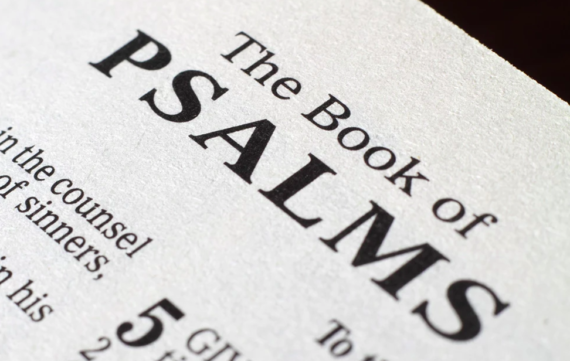This is one of three psalms most often quoted by the New Testament (pslam 22 and 110, being the others). Most of those quotations are applied in some way to Jesus, but it cannot be called predictive in the normal understanding of the word. It is not future oriented. It deals with realities present at the time of writing.
The New Testament references indicate that Jesus was suffering like his people have always suffered. There is at least one portion of the psalm that cannot be about Jesus, and another portion that does not fit him well. But the psalm is a fine model for the Israelites and, in most ways, for us.
Complaint
The psalm opens with a complaint.






Save me, O God! For the waters have come up to my neck. 2 I sink in deep mire, where there is no foothold; I have come into deep waters, and the flood sweeps over me. 3 I am weary with my crying out; my throat is parched. My eyes grow dim with waiting for my God. 4 More in number than the hairs of my head are those who hate me without cause; mighty are those who would destroy me, those who attack me with lies. What I did not steal must I now restore? (1-4)
The writer is in a desperate situation (1-2). His appeal for help appears to have been left unanswered (3). He is being treated unfairly (4b). His enemies and troubles are many (4). All of this will be repeated in different terms in verses 17-21.
This psalm is, therefore, a model of persistence, of continuing to appeal to God when we are weary.
Confession
The psalm continues with a brief, but notable, confession. “O God, you know my folly; the wrongs I have done are not hidden from you” (5). The context makes this notable. It is hard to admit guilt while suffering unjustly.
This is one portion of the psalm that is most obviously incompatible with the view that the psalm was intended as a prediction of Christ, for he had no folly or wrong to confess (Heb 4:15). But for us it is an important model. Confession is always in order. We must never appeal to God as if we deserve what we request.
Compassion
An appeal is made to God’s compassion. On what other basis could appeal be made? As innocent as we may sometimes be of the specific things we are accused of, we are not innocent before God. That is clear in this psalm (6, 13-16), and is abundantly clear from a New Testament perspective.
Again, this is a fine model for us. The only sound reason we can ever give for deliverance is the hope that our deliverance might result in God being glorified (6).
Curses
The psalm contains curses (22-28). Without an understanding of how God’s honour would be vindicated in Jesus, the Old Testament believers felt the need to call for punishment of sin, especially of sin that was directly an insult to God.
This is another part of the psalm that is not reflected in the life of Christ. We find his reaction to injustice a radical contrast to this (1 Pet 2:23). For us, this both is and is not a model.
The New Testament allows for Christians asking vindication for injustice (Rev 6:10). But our desire that God’s honour be vindicated should be tempered by the knowledge that it has been vindicated through the resurrection. Our calls for justice are tempered by the knowledge that mercy rather than justice is what we desire for ourselves. It ought therefore to be what we ask for others (Mt 7:12).
Confident praise
The psalm closes on a note of confident praise.
“I will praise the name of God with a song; I will magnify him with thanksgiving. 31 This will please the Lord more than an ox or a bull with horns and hoofs. 32 When the humble see it they will be glad; you who seek God, let your hearts revive. For the Lord hears the needy and does not despise his own people who are prisoners. 34 Let heaven and earth praise him, the seas and everything that moves in them. 35 For God will save Zion and build up the cities of Judah, and people shall dwell there and possess it; 36 the offspring of his servants shall inherit it, and those who love his name shall dwell in it (30-36).
Will God’s honour always be vindicated in my experience, in my lifetime? Probably not. Will the earthly Zion always be at peace? No, often it will not. None the less, the confidence with which the psalm closes is a model for our prayers.
God is to be praised. We may not understand his ways or his timing, but the ultimate victory of right is assured. We must not give way to despair, nor take justice into our own hands. We must learn to say, “As you will, what you will, when you will.”
Biblical prayers often contain complaints, sometime even calling down God’s punishment on enemies. But even psalms of complaint normally end in praise and thanksgiving. Maybe there is a connection between the honesty with which they make their feelings known to God and the confidence with which their prayers end (30-31). There may also be a connection between this thankfulness and the fact that, even in the midst of mistreatment, they did not lose sight of their own sinfulness.
We should pray more. We should be honest when we pray, confessing our need and being grateful for the grace that meets it.

